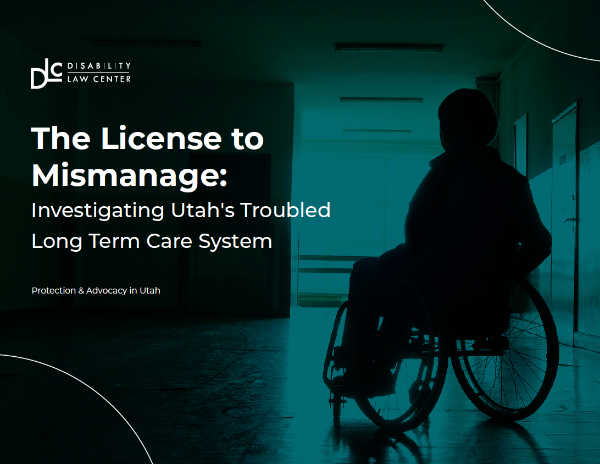Utah Disability Law Center Report Nets Results
Systemic problems remain, including low oversight, high housing costs
Last month, the Disability Law Center called out three of Utah’s long-term care facilities in a heartbreaking report detailing physical and medical neglect. In the weeks since, two arrests were made and two programs have been shut down.
However, the underlying causes remain, say officials from Utah’s DLC.
“I think for too long, a lot of these places have had a lack of accountability,” said Matthew Wappett, IDRPP’s executive director and a board member at the DLC. “These are marginalized populations. … It’s a good thing people are paying attention now.”
The DLC report demonstrates serious and ongoing issues at two facilities before they were closed. “While these actions should have happened long ago, the Disability Law Center is encouraged by the recent efforts of the Department of Health and Human Services in revoking the licenses of Hidden Hollow Care Center and Diamond Ranch,” reads a DLC statement released July 17. “We urge state leaders to take a hard look at our system and make any necessary reforms to ensure facilities are held accountable before needless tragedies occur.”
More than once, the law center’s report says state and local agencies hesitated to act against negligent facilities because they feared there was nowhere else for their residents to go.
“There is not a community-based mental health system in the state of Utah,” said Nate Crippes, Public Affairs Supervising Attorney at the DLC. “To the extent anyone says we do, there are bits and pieces. … If our bar is only to have places where people can go so they're not homeless, then our bar is that we have to have institutions that are just slightly better than homelessness. And I feel like our bar should be higher than that.
“We need more deeply affordable housing. We need permanent supportive housing, where people can afford to live but also with wraparound support.”
The high housing costs that are felt by the general public are especially hard on people who depend on social security or social security disability payments. They also affect group homes and institutions that already deal with staffing shortages and inflation.
There has been some good news, Crippes said. The Utah Legislature allocated $200 million toward first-time homebuyers, deeply affordable housing and services for the homeless in 2023.
The DLC is working to better understand the need. “My colleague Andrew [Riggle] and I are … trying to get a comprehensive study of our state's mental health system for those with serious and persistent mental illness,” Crippes said. “Even if we get that funded and passed, it's going to be a few years before we get all the information.”
Meanwhile, Dr. Wappett said, people with severe mental illness have limited options since a nationwide movement toward de-institutionalization in the late 70s. The movement followed some terrible abuses and was intended to meet people’s needs closer to home, but the pendulum has now swung the other way.
“The communities don’t have the capacity to address some of these issues,” Wappett said.


